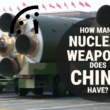Angels and demons: a dangerous game
By Maryam Javan Shahraki, December 21, 2012
In his second Roundtable essay, Selim Can Sazak continued to assert that Iran's nuclear program is aggressive in nature. Beenish Pervaiz has already detailed Iran's stance on its dispute with the International Atomic Energy Agency (IAEA) — that Iranian nuclear activities operate under full agency oversight, that Iran has declared itself ready to accept inspection of any atomic facility, and that the agency's inspection demands go beyond Tehran's legal obligations to provide access.
Sazak accuses Iran of fearing scrutiny of its nuclear sites. The truth is that Iran has granted access to nuclear sites many times, including a 2005 inspection of the Parchin explosives-testing facility, after which the IAEA reported that it "was allowed to take environmental samples, the results of which did not indicate the presence of nuclear material, nor did the Agency see any relevant dual-use equipment or materials." The Western response to Iran's transparency has been nothing but more sanctions, threats of attacks against nuclear installations, and, as is widely suspected, terrorist assassinations of Iranian nuclear scientists. Such behavior would disappoint any party to the Nuclear Non-Proliferation Treaty (NPT), but Iran has nonetheless chosen to keep the dispute within the diplomatic realm and permit IAEA inspectors to visit the country's nuclear sites "whenever they want."
I would also point out that positive momentum is developing in negotiations between Iran and the agency. Just a week ago, when IAEA Deputy Director General Herman Nackaerts returned to Vienna from talks in Tehran, he reported that progress had been made in negotiations and that additional meetings were scheduled for January. He also said that he expected the two sides to finalize a "structured approach" toward resolving their dispute, and to begin implementing that approach soon afterward. An IAEA visit to the Parchin facility, Nackaerts said, would be part of the structured approach.
Close examination. Sazak also writes that, "upon close examination," the arguments that I advanced in my second essay "fail the test of reality." I would make the same criticism of him: He asserts that he does not subscribe to any axis-of-evil notions, but he goes on in the same paragraph to demonize Iran by categorizing it among "nations that recklessly jeopardize regional stability and global security by possessing or pursuing nuclear weapons." If Iran so recklessly jeopardizes regional stability, why did its neighbor Turkey in 2010, along with Brazil, sign a deal to swap nuclear fuel with Iran? According to that agreement, 120 kilograms of uranium enriched to 20 percent would have been shipped to Iran for use in a reactor that produces medical isotopes, while Iran would have shipped 1.2 tons of low-enriched uranium to Turkey.
The deal was rejected by the Unites States and other nations, and new sanctions against Iran were pursued instead. But the fact remains that Turkey has generally been supportive of pursuing a diplomatic approach to the impasse over Iran's nuclear program.
The failure of the Turkish-Brazilian deal provides another dangerous illustration of the way in which demonizing Iran undermines the goals of the NPT. The ideological mindset evident among the United States and its allies deprives a treaty signatory of its inalienable rights. It may also, due to sanctions — the effects of which are brutal for Iranian civilians — irreversibly harm prospects for a diplomatic solution.
Again, turning Iran's nuclear program into a security issue — removing it from the context of the treaty and from the diplomatic realm — neither strengthens the NPT nor makes the Middle East a safer region. The only way to address disagreements over Iran's nuclear program is through diplomacy and regional cooperation.
Topics: Nuclear Weapons
Share: [addthis tool="addthis_inline_share_toolbox"]














